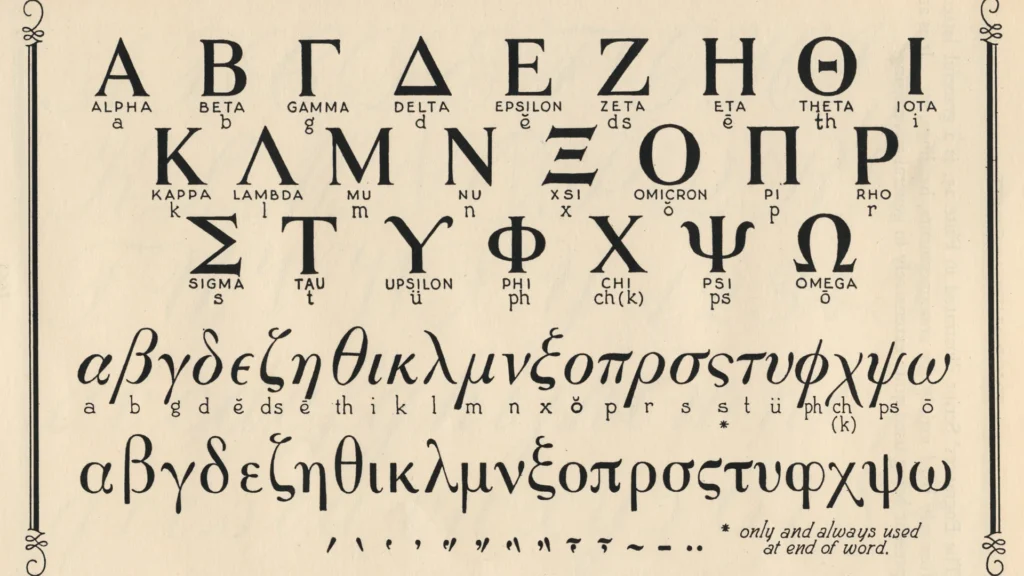The Greek Alphabet's Historical Significance
The Greek Alphabet’s historical significance is indisputable, serving as a linguistic and cultural cornerstone that has shaped the course of human civilization through its enduring legacy and contributions to literature, philosophy, and the spread of knowledge. This text explores the origins, structure, and influence of the Greek alphabet through various periods in history.

The Greek Alphabet's Historical Significance
Origins: Tracing the Roots
The Greek alphabet traces its origins back to the Phoenician script, which the Greeks adapted and expanded upon. It emerged around the 9th century BCE in Greece and quickly became a vital tool for communication.
Alphabet Structure: Letters and Sounds
The Greek alphabet consists of 24 letters, each representing specific sounds. Unlike some writing systems, Greek letters can also symbolize numerical values, contributing to their multifaceted utility.
Ancient Greece: The Birthplace of Democracy and Philosophy
In ancient Greece, the Greek alphabet played a pivotal role in the development of democracy, philosophy, and literature. It enabled the recording of philosophical ideas by luminaries like Plato and Aristotle and the documentation of early democratic principles in Athens.
Hellenistic and Roman Era: A Global Reach
During the Hellenistic period and later, as the Roman Empire expanded, the Greek alphabet gained global recognition. It was adopted by various cultures and served as the foundation for several modern scripts, including the Cyrillic alphabet used in Eastern Europe.
Medieval and Byzantine Periods: Preserving Knowledge
Throughout the medieval and Byzantine eras, the Greek alphabet became a repository of knowledge, preserving ancient Greek texts and facilitating the spread of Christian theology through manuscripts.
Renaissance: A Revival of Classical Ideas
The Renaissance witnessed a resurgence of interest in classical Greek culture and philosophy. The Greek alphabet played a crucial role in reviving ancient ideas and texts, contributing to the intellectual awakening of Europe.
Modern Era: A Global Alphabet
Today, the Greek alphabet continues to be relevant and influential. It is not only the script of the modern Greek language but also a symbol of tradition, knowledge, and academia. Greek letters are used in various scientific and mathematical notations, such as in physics and engineering.
Conclusion: A Living Legacy
The Greek alphabet’s enduring legacy transcends time and borders, standing as a testament to the profound impact of Greek civilization on the world. Its evolution, from its humble beginnings to its modern-day significance, underscores the importance of language and writing systems in shaping human history and culture.
